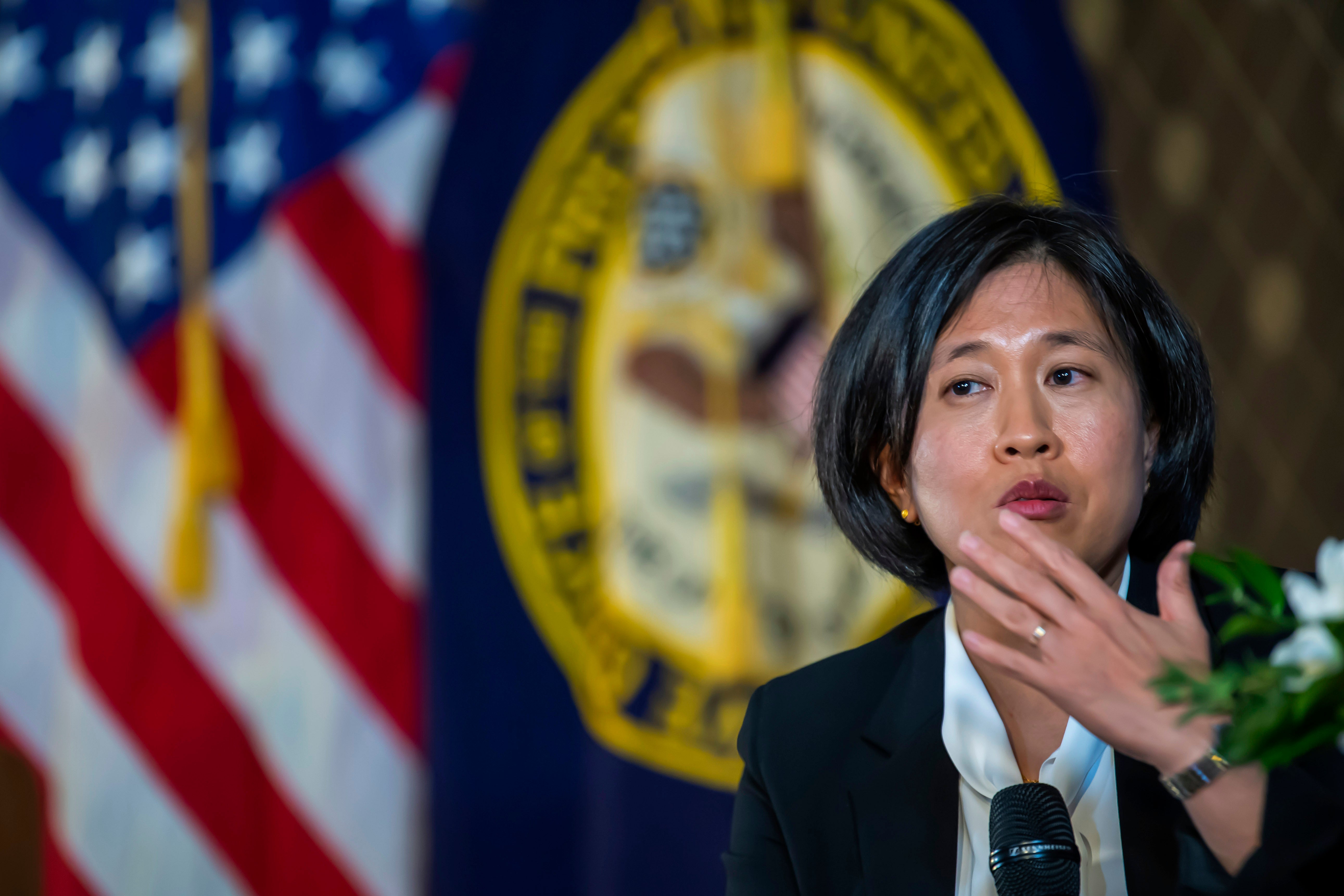US reaffirms support for easing WTO rules on COVID vaccines
A top U.S. trade official says the Biden administration remains committed to an easing of rules that protect the technology behind coronavirus vaccines so that they can be produced more widely

Your support helps us to tell the story
From reproductive rights to climate change to Big Tech, The Independent is on the ground when the story is developing. Whether it's investigating the financials of Elon Musk's pro-Trump PAC or producing our latest documentary, 'The A Word', which shines a light on the American women fighting for reproductive rights, we know how important it is to parse out the facts from the messaging.
At such a critical moment in US history, we need reporters on the ground. Your donation allows us to keep sending journalists to speak to both sides of the story.
The Independent is trusted by Americans across the entire political spectrum. And unlike many other quality news outlets, we choose not to lock Americans out of our reporting and analysis with paywalls. We believe quality journalism should be available to everyone, paid for by those who can afford it.
Your support makes all the difference.A top U.S. trade official said Thursday the Biden administration remains committed to an easing of rules that protect the technology behind coronavirus vaccines so that they can be produced more widely.
But ambassador Katherine Tai insisted that “we cannot will something into being” in negotiations on the issue at the World Trade Organization — because any such move requires all its member states to come on board.
Tai, the U.S. trade representative, acknowledged that some outside the talks might perceive the U.S. to have maintained “silence” on the issue in recent months. That was after Washington took a stance in May in favor of a waiver of intellectual property rules at the WTO when it comes to COVID-19 vaccines to help boost production around the world.
But she insisted work was continuing behind the scenes.
“This may be the case of the duck on the pond, where from the outside you think that the duck is just sitting there hanging out, but underneath the surface the duck’s legs are going very, very fast.” Tai said at a talk at Geneva’s Graduate Institute.
She said the United States and many other countries want to see increased production of vaccines and more equitable access to them. The waiver on COVID-19 vaccines is “something we remain dedicated to,” she said, while noting that the WTO operates by consensus — meaning all 164 member states must agree.
“While we are making progress collectively, there is still a lot more progress that we need to make," she said.
A Geneva-based trade official said a closed-door meeting of the WTO's TRIPS Council on Wednesday produced “points of convergence” when it comes to a possible response to the pandemic through intellectual property tools.
The council chair, Ambassador Dagfinn Sorli of Norway said he would aim to use the opportunity to advance toward a consensus when trade ministers from WTO member states meet from Nov. 30 to Dec. 3.
The World Health Organization says that the vast majority of COVID-19 vaccines — largely produced in the U.S., Europe and Asia — have gone to the world's richest countries, while developing nations have had relatively little access to them.
Tai promoted the U.S. show of “leadership” in taking the stance in favor of an IP waiver last spring, but said all countries need to show leadership on the issue for a waiver to be granted.
“Part of the privilege of being regarded as a leader is that, people are always asking ‘where is your leadership?’ — so we exercised our leadership in May,” she told reporters in Geneva before her talk at the Graduate Institute. “But please remember - right? - that the WTO is a consensus-based organization, so we cannot will something into being.”
“You have to work with others, you gotta talk to them and listen to them, and that is what we are doing,” she added. “Trust me, none of this is easy ... Everybody has got to exercise leadership.”